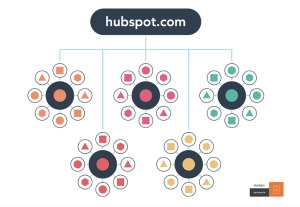
The marketing press is full of stories about how we can make marketing more effective in 2020. In most cases, these articles are full of oft-repeated advice: the importance of email marketing, why SEO is important for your business, and how to store your customer data safely.
In this article, we’ll take a different approach. Instead of looking at what we are doing right, let’s look at what we are doing wrong. Perhaps we can learn something that way. Here are the biggest mistakes that brands made in 2019, and how you can avoid them in the new year.
1. Trying to be everything for everyone
This is, believe it or not, the biggest mistake that marketers made in 2019. Multiple surveys have found that customers still feel that the content they receive isn’t relevant to them, and as a result, they stop reading content from a particular brand entirely.
In some ways, the reasons for this are easily explained. Brands are aware that they should try and reach as diverse an audience as possible, and try to do this by producing marketing content that is highly specialized. So far, so good. The problem is that, in many cases, this content is then targeted incorrectly.
As Lisa Mattson, director of marketing and communications for Jordan Vineyard & Winery told CMI earlier this year, “For seven years, we put out blog posts that showed how diverse Jordan Winery was as a business — posts about cooking, gardening, farming, floral design, travel, winemaking, construction, and news. This kept us from maintaining a loyal subscriber base. The same customer who wants to learn which is the best kitchen knife to use likely doesn’t care about how grapevines bloom or how floods impact vineyards”.
The takeaway? Send more targeted content in 2020 and make sure you are targeting the right audience.
2. Trying to go viral
Next up, trying to go viral. Producing marketing content that takes off in this way is certainly one of the biggest coups that a marketing team can pull off. The problem is that trying to do this often ends up being counterproductive.
That’s for at least two reasons. The first is that viral content is typically content that is unusual, or even shocking and taboo. Purposefully creating this kind of content in the hope that it goes viral can sometimes backfire, and merely end up alienating audiences.
The other reason is that in the rush to make viral content marketers can overlook more basic forms of marketing. Instead of focusing on creating quality content strategically, they can be distracted by trying to make the next big viral video.
3. Trying to be an expert
A related mistake is trying to be an expert at everything. Whereas research and planning are fundamental to online marketing campaigns, you should also recognize that your audience doesn’t expect you to produce definitive research on the biggest societal issues facing our world
This can be a particular problem in the types of “socially aware” campaigns that have become popular in 2019. Though they can be effective, if brands use these campaigns to push a highly controversial or sensitive issue, they can sometimes end up sounding biased and alienating potential customers. As Rebecca Lieb, analyst and founding partner of Kaleido Insights, tweeted this year, this type of campaign should always focus on “asking the right questions,” rather than “knowing all the answers.”
4. Too much quantity, not enough quality
This is not a mistake that is unique to 2019, but as online marketers produce more and more content, it is one that becomes more prominent by the year. Almost every digital marketing course, manual and guide tells you that you need to post content frequently, and that is undoubtedly true. However, if this comes at the expense of producing quality content, then you are not going to engage with your audience.
As we come to the end of 2019, a good example of this is the way that marketers have traditionally thought about holiday marketing and holiday planning. Instead of bombarding your customers with “festive” content, take a moment to think about what you can genuinely offer them during the holidays. One piece of truly relevant content is worth dozens of generic “fluff” pieces.
5. Not taking the long view
Ultimately, all of these mistakes stem from the same basic misunderstanding of how online marketing works.
As trends come and go, there is a huge temptation to jump on the bandwagon. Whether this be the kind of socially engaged campaign that was popular in 2019, or trying to produce viral content. The problem with this is that it can lead to online marketers forgetting about the basic principles that make their efforts worthwhile.
One of these principles, put simply, is to achieve the greatest possible audience engagement for the lowest possible budget. As such, instead of chasing new trends, perhaps it is time to return to the basics. Take another look at your budget for digital marketing, your email marketing software, and your website maintenance costs. Ask yourself whether each system you have invested in is worth the money.
This process also involves looking again at what your goals are when it comes to marketing. Increasing your social media followers, or posting a new article every day might give your team a pleasant feeling of a job well done. But unless these things are actually leading to increased sales, the time you have invested in them is largely wasted.
Final thoughts on 2019
But let’s not end on a downer. Though many of the mistakes marketers made in 2019 are not new, taking note of them might mean that this is the last time they appear.
If you recognize any of the mistakes in the list above, don’t feel bad: remember that you are not alone in making them, and use this realization as an opportunity to avoid them in the future.
Cheers to a successful 2020!
Digital & Social Articles on Business 2 Community
(27)
Report Post






